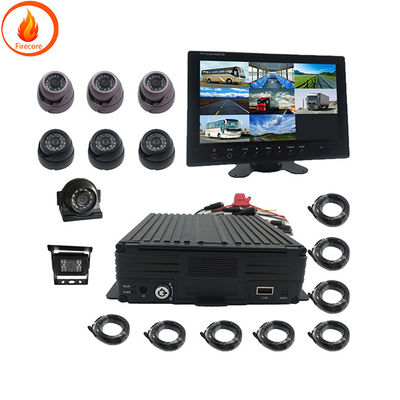DVR recorders play a key role in video forensics by capturing, storing and preserving important video evidence. When combined with specialized forensic software and the expertise of trained investigators, DVR becomes a powerful tool for revealing the truth behind complex legal matters. Experts can use advanced forensic tools, to extract critical information from unprocessed video, assisting in the investigation of crimes, resolving legal disputes, and upholding the rule of law.
What Is A Digital Video Recorder (DVR)?
A digital video recorder (DVR) records video to a local storage device, most commonly a hard disk drive. DVRs can record analog video sources on-site or capture video from a digital source. DVRs can be connected to an analog camera via coaxial cable, allowing it to be accessed remotely. A DVR offers enhanced features such as the ability to search for event recordings, or to sort by time and date. dvrs can be configured to automatically replace old footage as soon as storage space is full.
DVR Hardware Features:
- Can be mounted in a server rack
- Can include multiple source inputs (coaxial/optical)
- External monitor output
- I/O connection for pan-tilt-zoom (PTZ) cameras
- Event notification from security devices
- Notification of connectivity issues
DVR Software Features:
- Capture images by user or triggered by event
- Set resolution for per-user or per-event recording
- H.264 video compression for higher resolution with lower bandwidth
- Video analytics such as dwell time, motion direction and motion tracking
- Alarm, event and time query functions
- Multi-channel recording
- Archived footage
The DVR is limited by the physical number of input channels and cannot be upgraded. This makes them best suited for small businesses or home security systems. NVR (Network Video Recording) is a cloud-based video surveillance recording solution that can be upgraded at any time. Analog limitations mean that the quality of DVR recording is much lower than network solutions and the video is always stored locally, not in the cloud.
Advantages Of DVRs Include:
- Low cost and low technology for analog systems
- Simple to operate
- Low data consumption because data is stored locally
Disadvantages Of DVRs Include:
- Lower resolution, frame rate compared to network recording
- Requires local cabling and connections
- Installation can be complicated with multiple cameras and locations
- Requires separate power supply
- Not suitable for use with network cameras
- Only some models are capable of recording audio
- With the cost of storage and cloud services dropping, NVR has replaced analog dvr as part of today's security surveillance systems.
So, How Do DVR Recorders Work In Video Forensics?
In addition to surveillance, dvr is important in video forensics. Through the use of video forensics tools, investigators often use DVR footage to solve crimes and resolve disputes, and they can do so in the following ways.
1. Continuous Recording
DVR recorders are usually set to continuously record video clips from connected surveillance cameras. This continuous recording ensures that no critical moments are missed and a comprehensive record of events is maintained.
2. Storage and compression
Recorded video data is stored in the internal memory of the DVR or on an external hard disk drive. To optimize storage space, dvr usually uses video compression techniques such as H.264 or H.265 to reduce the size of the video file without significantly degrading the quality.
3. Timestamps and metadata
Modern DVR recorders also add timestamps to video frames to provide accurate information about when each frame was captured. In addition, metadata, such as camera locations, settings, and other relevant details, may be embedded to aid in the investigation process.
4. Event triggering
Some advanced DVR recorders support event triggering, where a specific event, such as motion detection or sensor alarm, can prompt the DVR to record additional frames before and after the triggering event. This feature helps to capture the critical moments leading up to an incident.
5. Authentication and integrity
To ensure the authenticity and integrity of the video recordings, dvr uses digital signatures or hash functions to verify that the video data has not been tampered with after recording.
6. Forensic software integration
In video forensics, specialized software tools, such as the DVR forensics software mentioned earlier, can be used to extract evidence from DVRs more efficiently. These software packages offer advanced features such as intelligent video retrieval, keyword searching and multiple video stream analysis to help investigators uncover critical evidence.
7. Chain of custody
Maintaining the chain of custody is critical in video depositions.The recordings from the DVR recorder, as well as the reports generated by the forensic software, help to document every step of the investigation and ensure that the video evidence remains admissible in court.

 Your message must be between 20-3,000 characters!
Your message must be between 20-3,000 characters! Please check your E-mail!
Please check your E-mail!  Your message must be between 20-3,000 characters!
Your message must be between 20-3,000 characters! Please check your E-mail!
Please check your E-mail! 











